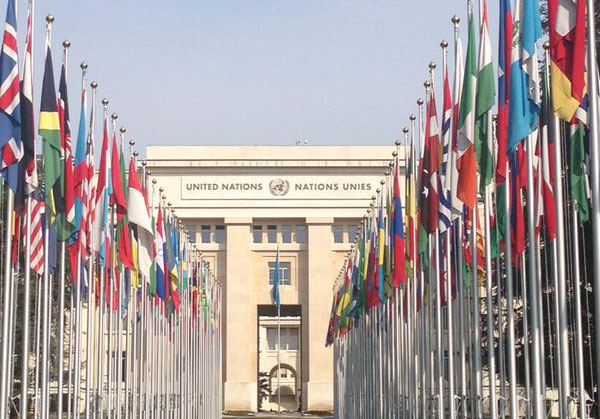
Jan 31, 2018 | Advocacy, Non-legal submissions
The ICJ submitted a written statement on impunity and transitional justice, ahead of the March 2018 session of the UN Human Rights Council.
The written statement can be downloaded in PDF format below:
In English: UN-HRC37-WrittenStatement-NepalPeruImpunity-EN
In Spanish: UN-HRC37-WrittenStatement-NepalPeruImpunity-ESP
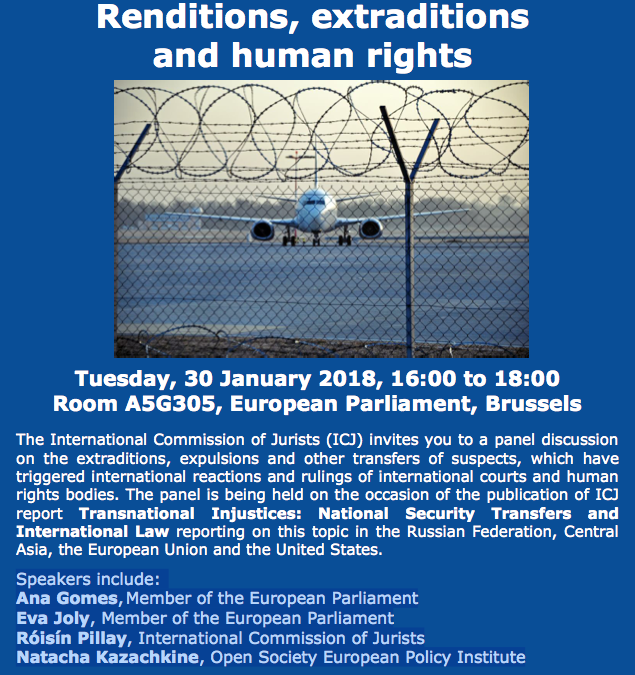
Jan 30, 2018 | Agendas, Events
The ICJ invites you to an event to discuss challenges in prevention of, and accountability for, violations of human rights in renditions and other transfers of suspects, including through past European complicity in US-led renditions, and in ongoing transfers of suspects in the CIS region.
Join us for a discussion marking the EU launch of the International Commission of Jurists’ report, Transnational Injustices: National Security Transfers and International Law. The event is kindly hosted by Ana Gomez and Eva Joly, MEPs.
Panelists will discuss the ongoing practice of states unlawfully rendering people accused of terrorism, accountability for violations of human rights in past renditions, and how the EU institutions and EU Member States should address these.
When: Tuesday 30 January 16.00 – 18.00
Where: Room A5G305, European Parliament, Brussels
RSVP to: anamaria.gomes@europarl.europa.eu
Speakers include:
- Ana Gomes, Member of the European Parliament
- Eva Joly, Member of the European Parliament
- Róisín Pillay, International Commission of Jurists
- Natacha Kazachkine, Open Society European Policy Institute
A flyer for this event is available in PDF format by clicking here.
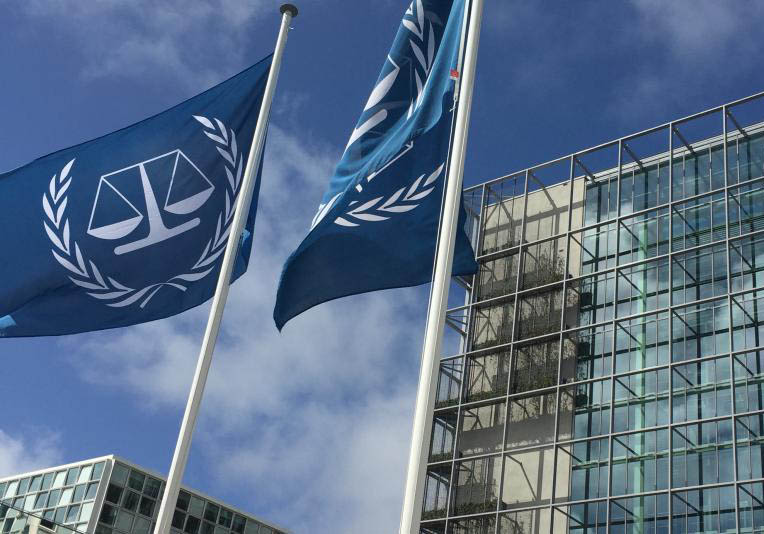
Dec 8, 2017 | News
The South African government should reconsider its move to withdraw from the ICC, said the ICJ, the Southern Africa Litigation Centre and Lawyers for Human Rights, local, regional and international human rights advocacy organizations.
This will be the second attempt by South Africa to withdraw from the Rome Statute, after the first attempt in 2016 was declared unconstitutional by the High Court after being successfully challenged by several parties including the Southern Africa Litigation Centre.
This week Minister Michael Masutha announced the government’s intention to pursue withdrawal from the ICC in a speech at the Assembly of State Parties of the ICC in New York.
The Minister was critical of Pre-Trial Chamber ruling of the ICC, which found that South Africa was obliged to arrest and detain Sudanese President Omar Al-Bashir.
He claimed that South Africa’s continued membership on the ICC would undermine “its ability to carry out its peace-making mission efforts in Africa” and “fulfill its role as mediator for peace”.
“The pursuit of justice and the pursuit of peace are complementary and mutually reinforcing objectives that South Africa will best achieve by remaining party to the Rome Statute of the ICC,” said Kaajal Ramjathan-Keogh, Executive Director of the Southern Africa Litigation Centre.
“Protecting heads of state from justice compromises efforts at trying to establish peace. South Africa’s refusal to arrest Bashir is an affront to Darfur victims,” she added.
Arnold Tsunga, the ICJ’s Africa Director said: “The notion that South Africa needs to embrace impunity in order to help peace is irrational and at odds with experience around the world. Greater accountability, for instance through international mechanisms, assists the rule of law, development efforts and respect for human rights. It is vital that South Africa projects itself as a leader in anti-impunity efforts in the region.”
“Withdrawing from the ICC would destroy a pillar of African efforts to tackle impunity which would be an unfortunate move for South Africa and the international community,” he added.
Masutha did not outline how the withdrawal will take place in compliance with South African law, indicating only that he would “shortly serve on Parliament” notice of withdrawal.
The African National Congress (ANC), South Africa’s ruling party, has indicated that it will discuss the issue of withdrawal at its policy conference scheduled for later this month.
According to a High Court judgment handed down earlier this year, however, the executive has no legal authority to withdraw South Africa from the ICC.
The High Court held “South Africa can withdraw from the Rome Statute only on approval of parliament and after the repeal of the Implementation Act”.
If notice were given to Parliament, it would have to independently consider the merits of withdrawal.
Under South African law the public should then be given an opportunity to participate in this process, which would involve the repeal of the Implementation Act.
“There is the added danger of an impunity gap should South Africa pull out of the ICC without putting in place any other mechanisms to ensure accountability for international crimes. There are currently no other regional or international fora to prosecute serious crimes under international law,” said Jacob van Garderen, Director of Lawyers for Human Rights.
Contact
Arnold Tsunga, ICJ’s Africa Director, t:+27 716405926, e: arnold.tsunga@icj.org
Tim Fish Hodgson, ICJ Legal Adviser, t:+27 828719905, e: timothy.hodgson@icj.org
Contact at Southern Africa Litigation Centre: Kaajal Ramjathan-Keogh kaajalr@salc.org.za / +27 84514 8039
Contact at Lawyers for Human Rights: Jacob van Garderen, jacob@lhr.org.za / +27 828203960
Background
Burundi left the ICC on 27 October 2017. South Africa has declared its intention to be the second African country to leave.
Gambia, which a year ago, had also indicated its intention to withdraw, spoke at the Assembly of State Parties of its pride to remain with the ICC and of its re-commitment to the ICC.
The South African government appeared before the Pre-Trial Chamber of the International Criminal Court in April 2017 to defend its failure to cooperate with an ICC request to arrest and surrender President Omar al Bashir of Sudan when he attended an African Union Summit in June 2015.
The Pre-Trial Chamber issued its ruling on 6th July 2017 which confirmed that South Africa did in fact fail to cooperate with a request from the ICC in violation of its international law obligations. The Chamber did not, however, issue any sanction for this non-compliance.
Read also
ICJ Briefing submitted to the Portfolio Committee on Justice and Correctional Services.
High Court judgment on withdrawal from the ICC.
ICC ruling on South Africa’s failure to arrest President Omar Al-Bashir.
Opening Statement of Minister of Justice Michael Masutha at Assembly of States Parties of the ICC.
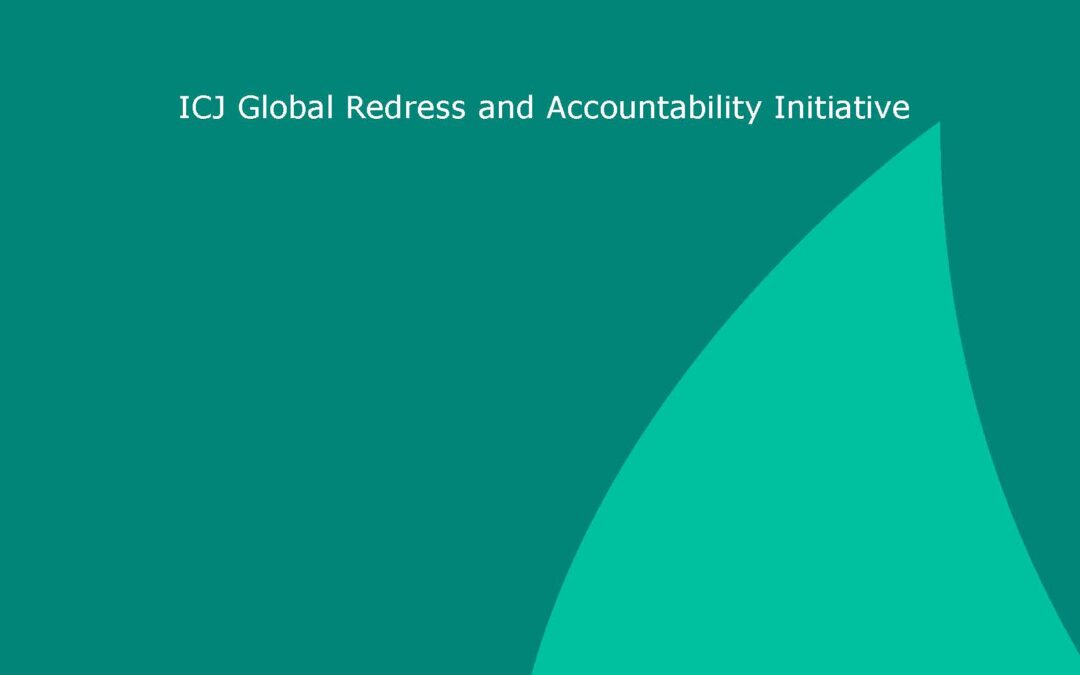
Nov 1, 2017 | News, Publications, Reports, Thematic reports
The arrest of absconding murder convict Bal Krishna Dhungel, a senior Maoist leader, highlights the weaknesses, as well as the promises, for victims seeking accountability through Nepal’s judicial system, said the ICJ as it released a report on accountability mechanisms in the country.
The ICJ’s report Achieving Justice for Gross Human Rights Violations in Nepal concludes that impunity for gross human rights violations is one of the major obstacles to the creation of a stable and legitimate democratic government and lies at the heart of the rule of law crisis in Nepal.
It found that a lack of commitment by Nepal’s political leadership to address past and ongoing human rights violations continues to allow perpetrators to escape justice and undermines victims’ right to effective remedies and reparation.
“In the past, the promise to shield perpetrators for human rights violations has been used as a bargaining chip to garner political support and build political alliances,” said Frederick Rawski, Director of the ICJ’s Asia Pacific Regional Programme.
“It is imperative that accountability for human rights violations remains a priority for Nepal’s political leadership after Parliamentary elections, and that alliances between political parties are not once again used as an excuse to undermine Nepal’s human rights obligations,” added Rawski.
Attempts to thwart justice have also included the cynical manipulation of justice sector actors, from the police to the Attorney General’s office, in a way that threatens the independence and credibility of the institutions responsible for safeguarding human rights and the rule of law in Nepal, the report highlights.
This pattern of impunity persists despite demands for accountability by civil society and victims’ organizations, as well as the National Human Rights Commission and Nepal’s Supreme Court.
“In many ways, the Supreme Court of Nepal has emerged as a beacon of hope for victims of human rights violations,” said Rawski.
“The Court has given domestic effect to Nepal’s obligations under international law and has set high standards for accountability, remedy and reparations,” he added.
However, the Government’s disregard of key judgments has limited the impact of the Supreme Court’s jurisprudence, the report says.
Attacks on the independence of the judiciary, as demonstrated by the impeachment motion against former Chief Justice Sushila Karki, also indicate a worrying trend.
The ICJ’s report found that the mandate and operation of transitional justice mechanisms fall short of international standards despite the repeated reinforcement of such standards by the Supreme Court.
Though ostensibly formed to provide a measure of public accountability, the practice of forming ad hoc commissions of inquiry to investigate rights violations has promoted impunity by diverting investigations from the criminal justice process – where they belong – into parallel mechanisms that are established by means that make them vulnerable to political interference and manipulation.
The ICJ’s report also concludes that gross human rights violations in Nepal are not a thing of the past, but are ongoing.
Notably in the Terai region, the State has responded to the Madhesh movement with excessive use of force, extrajudicial killings, and torture and other ill-treatment.
Political expediency has trumped calls for justice and accountability and the Government continues to use State machinery to shield perpetrators rather than serve the interests of justice.
“In a seemingly perpetual cycle, the weak rule of law in the country contributes to impunity for human rights violations, and this culture of impunity further erodes the rule of law,” said Rawski.
“The search for truth and justice in Nepal will not be realized unless this cycle is ended,” he added.
Additional information
Dhungel had been absconding since the Supreme Court upheld his conviction for murder in 2010. The arrest comes after a contempt of court petition was filed before the Supreme Court against the Inspector General of Police for failing to implement multiple Supreme Court orders directing Dhungel’s arrest.
Contact
Frederick Rawski, ICJ Asia Pacific Regional Director, t: +66 64 478 1121, e: frederick.rawski@icj.org
Alex Conte, ICJ Global Redress and Accountability Initiative, t: +41.79.957.2733; e: alex.conte@icj.org
Download
Nepal-GRA Baseline Study-Publications-Reports-Thematic reports-2017-ENG (full report in PDF)
Read also
ICJ Discussion Paper Nepal’s Transitional Justice Process: Challenges and Future Strategy (August 2017)
ICJ Report Authority without Accountability: The struggle for justice in Nepal (October 2013)
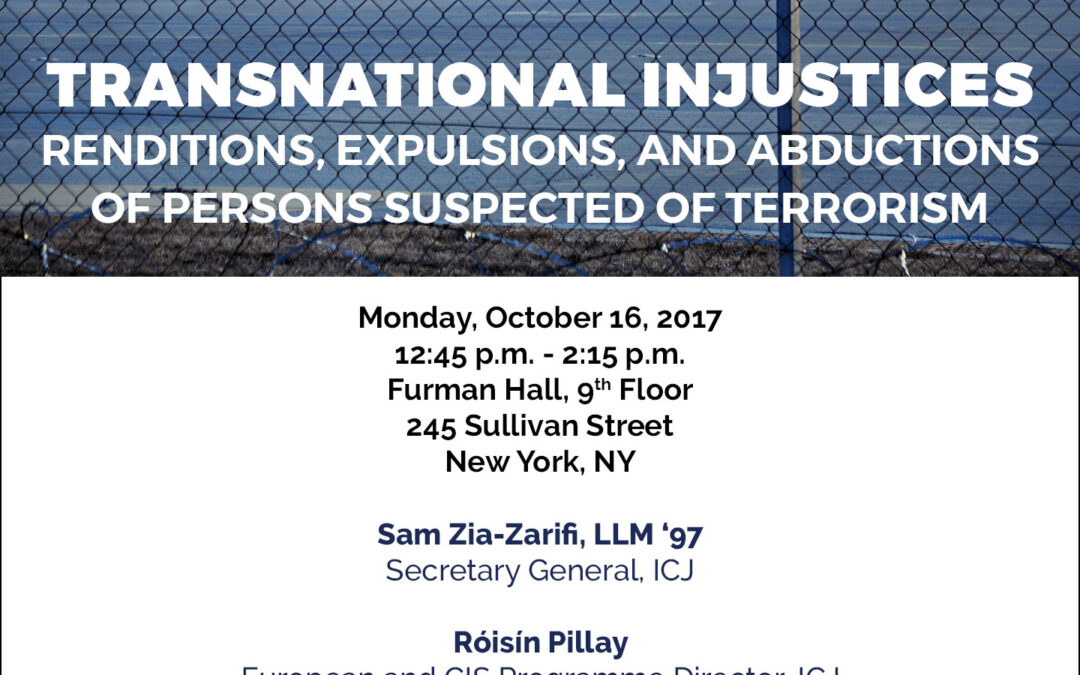
Oct 9, 2017 | Events, News
The ICJ, the Center for Human Rights and Global Justice and Amnesty International invite you today to an event to discuss challenges in prevention of, and accountability for, violations of human rights in the US-led rendition system, and in transfers of suspects in the CIS region.
Join us for a moderated discussion marking the U.S. launch of the International Commission of Jurists’ report, Transnational Injustices: National Security Transfers and International Law.
Panelists will discuss the ongoing practice of states unlawfully rendering people accused of terrorism, particularly in Russia and Central Asia, and explore the extent to which the impact of the CIA’s notorious extraordinary renditions can still be felt today.
When: Monday, October 16, 2017 – 12:45 pm to 2:15 pm
Where: Lester Pollack Colloquium Room – Furman Hall, 9th Floor, NYU School of Law – 245 Sullivan Street, New York City
RSVP here
Refreshments will be served
Speakers:
- Sam Zia-Zarifi, Secretary General, ICJ
- Róisín Pillay, European and CIS Programme Director, ICJ
- Margaret Satterthwaite, JD ’99, Professor of Clinical Law, NYU School of Law
Moderated by Julia Hall, Expert on Counter-Terrorism and Human Rights, Amnesty International
A flyer for this event is available in PDF format by clicking here.









